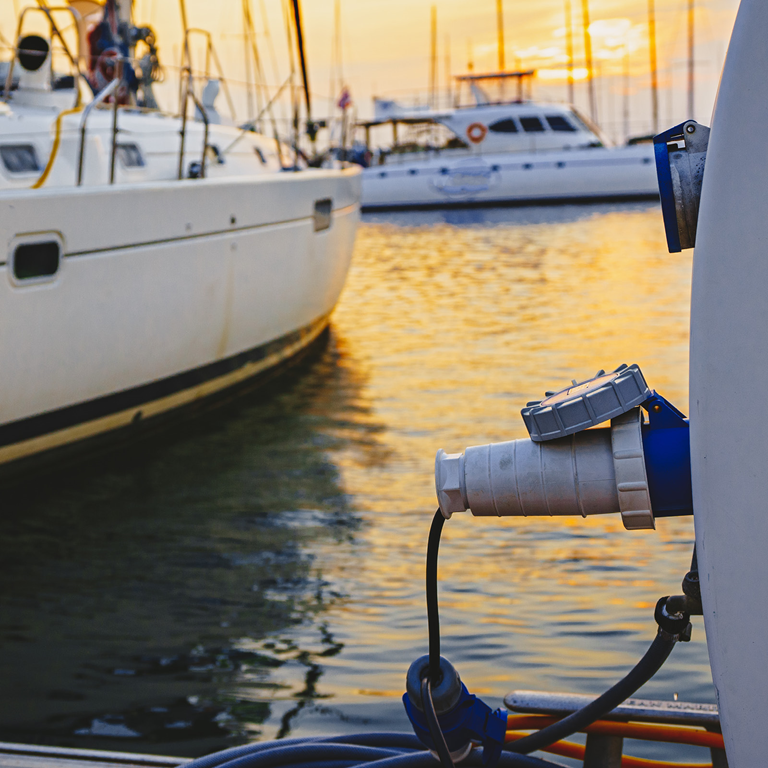As winter season fades and the call of open waters grows stronger, it’s time to prepare your boat for the spring sailing season. Thoroughly preparing your vessel keeps it safe and ensures smooth sailing and long-lasting performance as you set out to explore the waters with new friends.
Here’s an easy-to-follow guide to help you hit the water this spring season:
Give your boat a good clean
Start with a thorough cleaning to get rid of any winter grime:
- Hull and deck—wash off dirt, mildew, and salt with a mild detergent.
- Windows and hatches—clean for clear views and proper sealing. Open up the windows to let some airflow through the cabin.
- Drains and scuppers—check that they're free from blockages to avoid water buildup.
- Cabin interiors—sweep, vacuum, and wipe down everything, including storage areas and bilges.
Check everything over
Once it’s sparkling clean, give your boat a full inspection:
- Hull and deck—look for scratches or damage and repair them to prevent worsening issues.
- Propeller and shaft—check for cracks or dints and make sure everything’s secure and rotates freely.
- Rudder and fittings—ensure everything moves smoothly and is corrosion-free.
- Trim tabs—test for proper operation and look for any wear from winter.
- Rigging and sails – conduct a visual check of rigging and sails. If anything causes you concern, consider instructing a professional rigger.
- Mooring lines – check for wear and tear. This is particularly important if your vessel has not been ashore for the whole winter period.
Don’t forget the mechanics
Your boat’s systems are the heart of your adventure—make sure they’re in top shape:
- Fluids—top up engine oil, coolant, and other fluids, replacing any that look low.
- Belts and hoses—check for cracks or wear, and make sure everything’s tight and secure.
- Battery—clean terminals, test the charge and replace weak batteries.
- Engine and fuel system—look for cracks in fuel lines, replace filters, and check the tank for leaks or contamination, such as bacterial growth. You may consider having your engine serviced professionally for extra peace of mind.
Extra caution is necessary when storing diesel (gas oil) that contains biodiesel.
Biodiesel blends absorb more moisture than standard diesel, leading to increased water content and causing faster corrosion, sediment buildup, and clogged filters. Checking your engine before you set off could prevent it from breaking down when you are underway. The latest guidance, based on best practices, suggests that:1
- Fuel—should be refreshed every six months and no later than 12 months.
- Tanks—when in use, should be kept as full as possible to minimise condensation. This should be balanced against your usage and the length of time a full tank will last.
- Water—should be drained from tanks regularly to discourage microbial contamination (MBC), though it may not be possible to remove it entirely. Improving drain facilities can help make this process more effective.
- Seals and components—should be inspected frequently and replaced as needed to maintain system integrity.
- Strainers and filters—should be checked and cleaned more often to ensure optimal performance.
Test the electronics
A reliable electrical system is key for a stress-free trip:
- Lights—make sure the navigation and interior lights are working.
- Electronics—test your GPS, radios, and other gear.
- Wiring—check for any signs of wear or corrosion.
Safety first
Double-check your safety gear:
- Life jackets—do you have enough, and are they in good condition for everyone on board?
- Fire extinguishers—ensure they’re charged, accessible, and suitable for marine use.
- Distress signals—replace any expired flares or devices.
- First aid kit—restock and ensure it’s ready for any emergencies.
Prepare your trailer
If you use a trailer, make sure it’s road-ready:
- Tyres—check for wear and proper pressure, including the spare.
- Bearings and brakes—grease and test for smooth operation.
- Lights and winch—make sure all lights work, and the winch is in good condition.
Final touches before sailing
- Paperwork—confirm that your registration and insurance are up to date.
- Essentials—stock up on tools, spare parts, gear and emergency supplies.
- Trial run—test everything with a short trip to catch any last-minute issues.
Enjoy spring sailing
As you prepare for the warm weather and the adventures that await, remember that the end of summer can often bring stronger winds. These spring months are perfect for those looking to improve their skills through courses, as well as the more experienced sailors. Whether you’re a seasoned skipper or a novice, these preparations will ensure you’re ready for a successful spring sailing season.
With these steps, your boat will be ready for a safe and unforgettable season on the water. Let the adventures begin!
Sources


